| 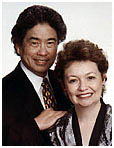 Effective
Teaching...
Effective
Teaching...
by Harry and Rosemary
Wong
July
2005
Four Year Summary
of Articles
We featured Jeff Smith, a welding
teacher in a voc-tech high school in Oklahoma in our May 2004
column, “His Students are All Certified.” (https://teachers.net/wong/MAY04/)
This year, on May 10, 2005, all 14 of Jeff Smith’s students
passed their state test again to be certified welders. This
means that in the past six years out of the six years he has been
teaching, Jeff Smith has successfully taught 100% of his class
to pass their State Code Section 9, which makes his grand total
for six years 110 certified welders. He leaves no one behind!
Bear in mind that how to teach welding is not in The
First Days of School.
So, why is Jeff Smith so successful? Successful
teachers can identify ideas and techniques that work, from no
matter the source, and can adapt them for use in their own classrooms.
What Jeff does is what all effective teachers do, adapt and implement.
Yet it’s a continuing saga with some high school teachers.
Their favorite phrase is, “Oh, it looks so elementary school.”
No elementary school teacher ever looks at the work of Chelonnda
Seroyer (https://teachers.net/wong/FEB05/)
and Ed Lucero (https://teachers.net/wong/MAR05/)
and says, “Oh it looks so high school.”
Harry Wong is a former high school science teacher and he can
tell you that much of what he has learned in how to manage a classroom,
deliver instruction, motivate students, and caring for and loving
kids he learned from watching elementary teachers, especially
primary teachers and the saints of education, the special education
teachers.
Many of the principles Jeff Smith uses to guide his teaching
are adaptable to any given learning situation, just as he adapted
the ideas from The First Days of School.
If you have time this summer, browse through our four
years of columns and you will note that the successful teachers
we feature transcend their grade level or academic area.
Four Year Summary of Articles
A summary of four years of articles for
Teachers.net
can be found this month.
It has been most pleasurable to share the attitudes,
strategies, and techniques of successful teachers and administrators
these past four years. In the process, we have
probably learned more than anyone else. We meet people,
or people send us letters and tell us what they are doing, and
with each letter we learn more and more and develop a greater
respect for the creativity and competence of teachers. So,
if you are wondering how we can write these columns month after
month, it’s very simple. Just keep those letters
and emails coming.
As we look over the four years of articles, there are
two recurrent themes:
Effective teachers can implement. Effective
teachers have the ability to look at someone else’s work,
regardless of the grade level or subject matter, or even if
it’s from someone who may not even be in education, and
are able to “steal it,” change it to fit, and use
it in their classroom. Effective teachers don’t
need articles specific to their grade level or subject.
Effective teachers are proactive. Effective
teachers have learned how to prevent problems, rather than react
to problems. We often get letters from teachers who want
to know what to do to a specific student. They want specific
punishments or consequences. We answer, “you don’t
‘do something’ to someone.” Rather,
you proactively have a classroom management plan that prevents
problems from occurring.
Summary of Effective Teaching Articles
JUNE 2000--Your First Day
(https://teachers.net/wong/JUN00)
Key Idea: First Day of School Script. Start school
with a first day of school script. One teacher began his
year with fun activities and spent the rest of the school year
chasing after his classes. His first day lacked structure,
which led to his students structuring the class for him. Elementary
school teacher, Melissa Pantoja, began the first day of school
with a script, which led to a successful beginning. Her
script is provided for you to use and adapt to your classroom.
JULY 2000—Applying for your First Job (https://teachers.net/wong/JUL00)
Key Idea: Mentoring is Not Induction. Know the
difference between mentoring and new teacher induction. Statistics
say that teachers entering the profession right now will not be
teaching in three to five years; in fact, many will not even last
a year. To combat the high turnover rate of teachers, many
schools and districts are turning to new teacher induction (not
mentoring) programs to prepare teachers for success in the classroom.
Examples of successful induction programs are provided.
Review them and learn what to look for in your next school.
AUGUST 2000—There is Only One First Day of School
(https://teachers.net/wong/AUG00)
Key Idea: Seven Things Students Want to Know. What
you do the first day of school will determine your success for
the rest of the school year. Discover the seven things all
students want to know on their first day of school, and why a
successful year starts on the first day of school. You would
not expect a truck driver to haul an expensive load without first
making sure he knew how to drive the truck. Neither can
you expect students to succeed if they do not know the routines
and procedures of your class. The seven things all students
want to know are provided so that you can use them to prepare
for your first day of school.
SEPTEMBER 2000—The Problem is not Discipline (https://teachers.net/wong/SEP00)
Key Idea: Manage, not Discipline Your Classes. Learn
how to manage, rather than disciplining your classroom. The
former will enhance student learning, and the latter will wear
you down. Rather than discipline your classes, manage them.
Learn which procedures every class needs to have down before
students can start learning. Create or hone your procedures
so that this school year will be your best school year ever! Suggested
procedures are outlined in the article. Copy and use them
in your own classroom.
OCTOBER 2000—How to Start a Class Effectively (https://teachers.net/wong/OCT00)
Key Idea: Effective Start-up Techniques for Prime Time.
Start your class with an organized routine that includes bellwork
and other effective start-up techniques. The first few minutes
of every class are prime time, so what you do in those first few
minutes determines how on task your students will be. Read
about teachers and schools who have experienced success because
of effective prime-time practices. Use the prime-time examples
as a guide to create your own effective prime-time practices.
NOVEMBER 2000—The First Five Minutes are Critical
(https://teachers.net/wong/NOV00)
Key Idea: The First Five Minutes Are the Most Important.
Make the first five minutes of your class count. Like the
first chapter of a good novel, the beginning of class must capture
students’ attention. Have your students working the
minute they walk into class and you will have their attention.
Once you have achieved this, it is easy to keep them on
task. Use the examples in this article to create your own
bellwork and warm-up activities.
DECEMBER 2000—It’s Not the Students, It’s
the Teacher (https://teachers.net/wong/DEC00)
Key Idea: Effective Teachers Show, not Tell. When
teachers tell us their discipline problems, we refer them to this
article. Ineffective teachers want to “do things”
to students, whereas effective teachers know how to teach procedures.
Rather than telling students what to do, show them how to
do it. Effective teachers, like effective parents, show
students what to do instead of telling and yelling. Even
a student from a negative home environment will respond positively
if teachers follow the steps shared for teaching procedures.
JANUARY 2001—The Miracle of Teachers (https://teachers.net/wong/JAN01)
Key Idea: Thanks, Praise, and Encouragement for the Miracle of
Teachers. Learn what teachers have been doing right,
and how they have improved the American condition exponentially
in a few short years. Teachers are the most amazing professionals
in the world today, and you deserve to be thanked and to know
that their accomplishments are shaping the nation for continued
success. Take heart and encouragement from the stories of
hope in this article. You, the teacher, are a miracle.
FEBRUARY 2001—A Journey of the Heart (https://teachers.net/wong/FEB01)
Key Idea: The Impact of Teachers on Students’ Lives.
This column is about the journey teachers make into the
hearts of their students. What you do everyday, whether
someone tells you or not, touches the lives of your students in
immeasurable ways. Teachers change lives, and the proof
is in every student who has gone on to succeed. If you just
touch even one life as a teacher, you are a success. Learn
to invite students to learn by following the steps in this article.
MARCH 2001—What Successful New Teachers Are Taught
(https://teachers.net/wong/MAR01)
Key Idea: Induction Prepares Teachers for Success. Learn
how induction programs teach new teachers how to become successful
teachers. Start your new career right, in a district that
values its teachers and provides a comprehensive and ongoing induction
program for all teachers new to the district. Know the difference
between mentoring programs and induction programs, and choose
to teach in a district that has a solid, comprehensive program
to help you develop in your chosen career.
APRIL 2001—How to Recognize Where You Want to Be
(https://teachers.net/wong/APR01)
Key Idea: The Ten Questions to Ask at Your Interview.
Know the ten questions you should ask at your interview
to ensure you choose the school and district that are right for
you. After reading this article, you will be able to recognize
the district you want to teach in and maximize your potential.
Your career depends on the decision you make. Copy
the ten questions you should ask and use them in your next interview.
MAY 2001—How to Motivate Your Students (https://teachers.net/wong/MAY01)
Key Idea: Motivational Activities to Capture Students’ Attention.
Motivate and entice students with discrepant events.
Then, learn how and why to continue the lesson with group collaboration.
Students will remain motivated to do whatever they are instructed
to do. Ideas for discrepant events in different subjects
are provided in this article. Use them to capture the class’
attention and imagination.
SEPTEMBER 2001—How a Good University Can Help You
(https://teachers.net/wong/SEP01)
Key Idea: The Value of a Good University. A good
university will teach you how to be an effective teacher. Sarah
Jones’ experiences at Western Kentucky University enabled
her to begin her teaching career with the proficiency of a veteran
teacher. Her success is due to diligent instruction in everything
from lesson planning to effective classroom management practices.
Before she ever set foot in a classroom, she already had
a comprehensive list of classroom procedures to develop responsible
students. Copy and adapt Sarah Jones’ action plan
to meet the needs of your teaching environment.
NOVEMBER 2001—The Effective Teacher Thinks (https://teachers.net/wong/NOV01)
Key Idea: Effective Teachers Can Implement What Other Effective
Teachers are Doing. Become an effective teacher
by thinking about what you learn, or observe other teachers doing,
and adapting it to meet your unique classroom management needs.
Steve Geiman, a Physical Education teacher in Virginia, thought
about what Harry said at a conference and the wheels began to
spin. The result is an effective and efficient model of
classroom management that has transformed his PE class. Steve's
procedures are outlined in this article. Copy, adapt, and
implement the procedures in your class.
DECEMBER 2001—Van Gogh in Nine Hours (https://teachers.net/wong/DEC01)
Key Idea: Effective Classroom Management Works in Every Situation.
This column illustrates effective classroom management procedures
in two very different environments, the library and an elementary
art classroom. Learn from the success of Betty Hamer and
Jeanne Bayless, as they guide their students to success with routines
and procedures that cut down on the confusion, mistakes, and messes—
and allow students to get down to the business of learning. Both
teachers’ classroom management procedures are featured in
the article for your needs.
JANUARY 2002—A Most Effective School (https://teachers.net/wong/JAN02)
Key Idea: Safe and Productive School Culture Leads to An Effective
School. Transform your school into an effective
school, by creating a school culture that promotes a safe and
productive learning environment starting on day one. Goldfarb
Elementary in Las Vegas, Nevada, has just such a culture. They
developed and maintained a consistent school-wide set of procedures
that have become the foundation for the school’s culture.
Create school-wide procedures using Goldfarb’s procedures
as a guide, and watch your school blossom into an effective learning
environment.
FEBRUARY 2002—A Stress-Free Teacher (https://teachers.net/wong/FEB02)
Key Idea: Become a Stress-Free Teacher. Reduce
your work-related stress by enforcing consistent procedures and
routines for all classroom activity and interactions. Liz
Breaux’s structured approach to classroom management has
guided students to success, and has made her classroom virtually
problem-free. Apply her secrets to stress-free teaching,
and begin your own path to a teaching career free from anxiety.
MARCH 2002—Impossible, No Job Openings? (https://teachers.net/wong/MAR02)
Key Idea: Teacher Induction Means Teacher Retention.
Learn how to retain your new teachers with a structured new teacher
induction program that guides them through classroom management,
instructional strategies, and more. By teaching them the
things they need to know before they step foot in a classroom,
you will be setting them up for a successful career. See
the procedures that Medford’s new teachers have created,
and get inspiration for your own list of procedures.
APRIL 2002—Even Superintendents Do It (https://teachers.net/wong/APR02)
Key Idea: Good Leaders Are Models of Success. We
have shared how teachers and principals create and maintain effective
schools. In this article we show you that superintendents
do it, too. Sunnybrook School District #171, under the guidance
of Dr. Joseph Majchrowicz, has developed an effective district-wide
culture based on core values agreed upon by all the member of
the learning community. The district-wide set of procedures
established by Sunnybrook’s learning community, as well
as their four core values, are showcased in this column. Review
this article to select elements of effective teaching to implement
in your school or classroom.
MAY 2002--$50,000 to Replace Each Teacher (https://teachers.net/wong/MAY02)
Key Idea: New Teacher Induction Programs. This
article highlights effective new teacher induction programs and
shares evidence to support the implementation of induction. The
costs of having an effective new teacher induction program are
small in comparison to the cost of losing newly hired teachers.
Use the information in this article to guide you as you
build an effective induction program for your new teachers, or
use the information within this article to guide your quest for
the perfect school or district in which to begin, or continue,
your teaching career.
JUNE - JULY 2002—Teaching Procedures is Teaching
Expectations (https://teachers.net/wong/JUN02)
Key Idea: Procedures Start on Day One. Teach your
students procedures starting on day one. Establishing procedures
beginning with the first day of school will set you up for a smooth
school year. Don’t believe us? Read this month’s
column, and learn how teaching procedures teaches your student
what you expect. Use the first day of school script contained
within the article to develop or hone your own first day of school
script.
AUGUST 2002—How to Start School Successfully (https://teachers.net/wong/AUG02)
Key Idea: First Day of School Action Plan. Start
your first day of school with an action plan. Sarah Jones
began planning her action plan, procedures, and activities long
before she ever set foot in a classroom, and it paid off. Use
the sample Action Plan to guide you in creating your own First
Day of School Action Plan, and the Academic Expectations templates
to guide you in creating your statement of academic expectations.
SEPTEMBER 2002—Dispensing Materials in Fifteen
Seconds (https://teachers.net/wong/SEP02)
Key Idea: Effective Procedures Make Activities Effortless.
Using procedures will make any classroom activity go off without
a hitch, and will guarantee that all your supplies are accounted
for at the end of the activity. Imagine a school year in
which no supplies are lost and activities flow without a single
discipline problem. Use the time-tested methods for dispensing
and collecting materials contained in this article and never again
lose another ruler!
OCTOBER 2002—Effective Practices Apply to All Teachers
(https://teachers.net/wong/OCT02)
Key Idea: Effective Practices Work in All Classes. Effective
classroom practices apply to all teachers, even foreign language
teachers. Effective teachers can adapt the techniques in
The First Days of School to any classroom environment,
and any subject matter, even high school Spanish! Review
examples of foreign language teachers’ procedures, from
what to do before class starts to procedures for traveling teachers.
Reflect on what you have learned and then adapt your favorite
procedures to implement in your own classroom.
NOVEMBER 2002—A Class Size of 500 (https://teachers.net/wong/NOV02)
Key Idea: How to Manage Your Non-Traditional Classroom.
Imagine standing in front of 500 teenagers, raising a hand,
and having the entire class of 500 become quiet in a matter of
seconds. It is possible. These results are just a
matter of establishing procedures and practicing them with the
students until they become routine. This article examines
the success of teachers in non-traditional classrooms, and illustrates
how even the largest class can be a well-oiled learning machine.
DECEMBER 2002—No Problem With Hurricane Lili (https://teachers.net/wong/DEC02)
Key Idea: Students Remember Effective Procedures. School-wide
procedures can make school flow smoothly even after a devastating
act of nature has shaken the community. Imagine a hurricane
tearing through your community and school, and leaving in its
wake devastation and despair. Now imagine the students returning
to school, shaken but finding a classroom ready for learning.
This is not a fluke; it is a result of consistent and practiced
school-wide procedures.
FEBRUARY 2003—How to Retain New Teachers (https://teachers.net/wong/FEB03)
Key Idea: Teacher Induction is A Multi-Year Commitment.
Retain new teachers by implementing a new teacher induction program.
Induction is a multi-year investment in your new teachers’
career, and in your school/district’s ability to retain
top talent. Induction is a process that includes a variety
of career building activities, from courses in classroom management
practices to how to integrate effective strategies within a lesson
plan. Learn the components of a successful induction program,
and read examples of three commendable induction programs.
Model your approach after these fine examples and watch as your
retention rates rise to unprecedented levels.
MARCH 2003—First Day of School Script (https://teachers.net/wong/MAR03)
Key Idea: First Day of School Scripts Work. This
column provides further proof that first day scripts put teachers
on the road to success. This article shares Melissa Pantoja’s
Daily Class Routine for the Substitute and John Schmidt’s
First Day Script, Procedures, and Class policies. Utilize
these exceptional works to guide your creation of a First Day
Script and lists of your own procedures that will guide your class
to success from day one.
APRIL 2003—The Effective Substitute Teacher (https://teachers.net/wong/APR03/)
Key Idea: Effective Substitutes Employ Effective Practices.
Prepare in advance for your next substitute teaching adventure.
Learn how to create a Sub Pack and what materials it should include.
Print a copy of the Professional Substitute Teachers’
Checklist and use it to organize your daily routine and prepare
for your next subbing job. Peruse the many helpful substitute
teacher links and gather as many additional hints that you can
glean from these valuable resources.
MAY 2003-Applying for A Teaching Job in A Tight Market,
Part 1 (https://teachers.net/wong/MAY03)
Key Idea: Actions that Guarantee Interview Success. This
article teaches the actions that guarantee a successful interview.
There are two critical questions you should ask at your interview.
In this article, we discuss the first question, “Does your
district have a new teacher induction program?” Review
the hints contained in this article as you prepare for your teaching
interview and get ready to ‘wow’ the interviewer.
JUNE - JULY 2003—Applying for A Teaching Job in
A Tight Market, Part 2 (https://teachers.net/wong/JUN03)
Key Idea: The Value of Curriculum and Standards Guides.
This article answers the second question all teachers should ask
when they interview for a position, “Does the district have
a curriculum guide that is aligned to state standards?”
Understanding the state standards and implementing them in a classroom
is hard enough, but to do so without a curriculum guide is suicide.
Be sure that the school you choose has a set curriculum
for each grade, and that it aligns with the state standards. As
a bonus, included are end-of-the-year procedures. Use them
to guide you toward a stress-free summer vacation and new school
year.
AUGUST 2003—How to Start A Lesson Plan (https://teachers.net/wong/AUG03)
Key Idea: Creating Effective Lesson Plans. Discover
how to begin lesson planning when there is no curriculum guide
to steer you. Many districts do not have curriculum guides,
and most teachers do not leave behind collections of curriculum
and activities to assist a beginning teacher. Follow the
Steps to Creating an Effective Assignment and begin your lesson
planning with confidence.
FEBRUARY 2004—The Effective Teacher Adapts (https://teachers.net/wong/FEB04/)
Key Idea: Getting Out of Survival Mode. This article
explores the realities of survival mode, and explains how to move
beyond survival to mastery. If you are in survival mode,
you must read this article. It contains wisdom that will
help you to become the teacher you always dreamed you would be.
The article also contains an innovative adaptation of the
Tote Tray System. We invite you to explore and adapt this
method for use in your own classroom.
MARCH 2004—A Well-Oiled Learning Machine (https://teachers.net/wong/MAR04/)
Key Idea: Classroom Management in the Diverse Classroom.
This article features the classroom management plan of Nathan
Gibbs, which has turned his class into a well-oiled machine.
Consistent classroom management will even make the most behaviorally
challenged child take note and perform his best. Adapt the
procedures you find in this article to meet the needs of your
learning community.
APRIL 2004—What to Do When They Complain (https://teachers.net/wong/APR04/)
Key Idea: Respond to Complaints the Right Way. This
article highlights the proper response to complaints and presents
further examples of Nathan Gibbs’ procedures that you can
modify for use in your classroom. In every group there will
be at least one person who complains; this includes any given
group of students. This article gives insight into how to
deal with those complaints without becoming upset, and how to
promote critical thinking and problem-solving skills at the same
time! Try the complaint procedure, and see how it changes
the dynamics in your classroom.
MAY 2004—His Students are All Certified
(https://teachers.net/wong/MAY04/)
Key Idea: Effective Classroom Management is Universal.
This article demonstrates that effective classroom management
procedures are universal and can be used to create a successful
learning environment from Pre-K to Technical College and beyond.
It reveals the career changing management and teaching strategies
of Jeff Smith. Jeff shared his Goals and Procedures with
us, so that you could take from them ideas to build your own class
goals and procedures. Please use his examples and modify
them to suit your particular classroom needs.
AUGUST 2004—How to Help Students With Their Assignments
(https://teachers.net/wong/AUG04/)
Key Idea: Provide Students With an Agenda.
After teaching for over ten years, Carol Brooks, a middle school
teacher in South Carolina, came up with a solution to the problem
of student organization. In time, her classes of underachieving
students were doing so well that the parents, who didn’t
even know what she was doing, were asking for what their neighbors
were “screaming” for, “Get my kid into that
notebook class!” The key is a one-page agenda.
SEPTEMBER 2004—How Procedures Saved a Teacher’s
Life (https://teachers.net/wong/SEP04/)
Key Idea: Be Prepared for an Emergency.
Heather Chambers, who teaches kindergarten in Denton, Texas, had
a diabetic seizure and collapsed in class. Because of her
health condition, Chambers developed a very simple, but highly
effective procedure for her class in case she had a seizure.
In deed, she had a seizure and because her class knew the procedure
of what to do, they saved her life.
OCTOBER 2004—The Saints of Education
(https://teachers.net/wong/OCT04/)
Key Idea: The Need for Structure. The demands
on the teachers of special education students are enormous.
The work is emotionally and physically draining. The stress
is considerable. The magnitude of the workload is colossal.
Yet, there are some who do well and are truly the “saints
of education. Typical of these teachers is Robin Zarzour
who works with children with a variety of disabilities—Autism,
speech and language delays, ADHD, severe behavior, and with physical
and developmental handicaps.
NOVEMBER 2004—PowerPoint Procedures
(https://teachers.net/wong/NOV04/)
Key Idea: Present Procedures in PowerPoint. Some
teachers duplicate pages and distribute them to students.
Some teachers make charts and attach them to the walls.
Some teachers make overlays and display them with a projector.
And Kazim Cicek in Tulsa, Oklahoma, communicates his classroom
management procedures to his classes with a PowerPoint presentation.
JANAURY 2005—The First Ten Days of School (https://teachers.net/wong/JAN05/)
Key Idea: It’s All in How You Begin. Jane
Slovenske’s success with her students begins on the very
first day of school. She spends the first ten days of school
teaching and reinforcing those behaviors and standards her students
will need to succeed in her classroom. In addition to the
academic instruction, these are the procedures Jane Slovenske
teaches on the first ten days of school.
FEBRUARY 2005—The Power of Procedures (https://teachers.net/wong/FEB05/)
Key Idea: The First Day Comes. The first day of
school finally came. Her lesson plans were ready.
The desks were in order. The PowerPoint was ready to go.
Chelonnda Seroyer, a first year teacher, had not even entered
the classroom yet. The first minute of her first year as
a new teacher had not begun. Standing at the door dressed
in a suit, she was greeting her students when she had this eerie
feeling. She turned to look in her classroom and the students
had already started working on the assignment. Yes!
She was now confident that this was going to be a good day.
It turned out to be a great year.
March 2005—His Classroom is a Real Life Office
(https://teachers.net/wong/MAR05/)
Key Idea: Don’t Leave the Profession. Ed Lucero
was miserable! He thought about leaving the teaching profession.
He decided to give it one more try, but knew he had to make some
radical changes. He restructured his classes to be more business
like. This corresponded with the classes that he was teaching—Business,
Marketing, and Finance.
It worked and he loves teaching again.
April 2005—Never Cease to Learn
(https://teachers.net/wong/APR05/)
Key Idea: Effective Teachers Go to Conventions to Learn.
Never, never cease to learn. Go to at least one conference
a year. Conferences are very easy to understand. This
column explains how conferences are structured. Go and listen
to the professional attitude of successful teachers. They
are all participating, contributing, and doing. Everyone
is doing and not complaining. It is heart-warming and contagious.
You go back to school fully charged with a positive attitude and
proud that you are a teacher.
May 2005—Improving Student Achievement is Simple,
Part 1 (https://teachers.net/wong/MAY05/)
Key Idea: It’s the Teacher. It’s the
teacher – what the teacher knows and what the teacher does
in the classroom -- that results in student learning. Improving
student achievement is very simple. It’s the teacher
and how the teacher instructs. When teacher instruction
is effective, you will see improved student learning. In
fact, the most effective teachers produce as much as six times
the learning gains as the least effective teachers.
June 2005—Improving Student Achievement is Simple,
Part 2 (https://teachers.net/wong/JUN05/)
Key Idea: It’s Still the Teacher. Since it
is the teacher who holds the key to student achievement, a district
must have an induction program that immediately focuses the new
teacher on a district’s mandate and goal of student learning.
Then, the induction program is to flow seamlessly into a lifelong
professional development program. The process of lifelong
professional development must become a priority—for the
sake our students. They deserve no less than the very best.
Please Share With Us
If you have stories of your success, please share them
with us. We are in the sharing business.
We thank the people who have the skill to take the ideas other
teachers share, modify and use them, and then, in turn, share
their own techniques with the profession.
As you enjoy your summer, please read our past columns and know
that
There is something inherently special about our profession
that allows us to close out a previous academic year and plan
for a new beginning—a sort of annual renewal, if you will.
Lee Gray
Best wishes for a pleasant summer!
 For a printable version of this article click
here.
For a printable version of this article click
here.
Harry & Rosemary Wong products: http://www.harrywong.com/product/
Email Harry Wong: harrywong@teachers.net
Gazette Articles by Harry & Rosemary Wong:
If you spot a link that appears to be out-of-date, please alert us at webmaster@teachers.net!
- A Grateful Goodbye After 15 Years (Jun 2015)
- Love, Marriage, and Babies, Oh My! (May 2015)
- Retention Rate Is 100 Percent (Apr 2015)
- Teacher Effectiveness and Human Capital (Mar 2015)
- Training Teachers to Be Effective (Feb 2015)
- Making Deals Is Ineffective (Dec 2014 / Jan 2015)
- Retrieving and Carrying Electronic Devices (Nov 2014)
- Sharing to Succeed (Oct 2014)
- How a University Prepares Its Students (Sep 2014)
- Effective Teaching (Aug 2014)
- Your Future Is in Your Hands (June/July 2014)
- The Classroom Management Book (May 2014)
- When Students Succeed; Teachers Succeed (April 2014)
- Teaching New Teachers How to Succeed (March 2014)
- Execute and Praise (February 2014)
- Shaping a Solid Foundation (Dec 2013 / Jan 2014)
- The Most Misunderstood Word (November 2013)
- How to Start Class Every Day (October 2013)
- Prevention: The Key to Solving Discipline Problems (September 2013)
- Planning, Planning, Planning (August 2013)
- Are You THE One? (June / July 2013)
- Practical Examples That Work (May 2013)
- A Disability Is Not a Handicap (Apr 2013)
- Totally Inexcusable (Mar 2013)
- Be Proud of Public Education (Feb 2013)
- Structure Will Motivate Students (Dec 2012 / Jan2013)
- Orchestrating the Classroom (Nov 2012)
- The Lasting Impact of Instructional Coaching (Oct 2012)
- Learning, Laughing, and Leaving a Legacy (Sep 2012)
- Twenty-two, First Year, and Legit (Aug 2012)
- A Master Teacher of Teachers (June/July 2012)
- Where Going to School Means Success (May 2012)
- A Nationally Celebrated High School (Apr 2012)
- The Highest Rated School in New York City, Part 2 (Mar 2012)
- The Highest Rated School in New York City, Part 1 (Feb 2012)
- The Importance of Culture (Dec 2011 / Jan 2012)
- You Can Teach Classroom Management (Nov 2011)
- Seamless, Transparent, and Consistent (Oct 2011)
- Coaching Teachers to Be Effective Instructors (Sep 2011)
- How a Principal Creates a Culture of Consistency (Aug 2011)
- Graduation Begins in Your Classroom (June/July 2011)
- The Inspiration of a Mother (May 2011)
- How to Be an Effective Leader (Apr 2011)
- Learning Objectives: The Heart of Every Lesson (Mar 2011)
- Even Shakespeare Had Structure (Feb 2011)
- Effectiveness Defined: It's Not a Mystery (Dec 2010 / Jan 2011)
- Surviving Without a Principal (Nov 2010)
- Achieving Greatness: Locke Elementary School, Part 2 (Oct 2010)
- Teaching Greatness: Locke Elementary School, Part 1 (Sep 2010)
- Effective from the Start (Aug 2010)
- Ten Year Summary of Articles, 2000 to 2010 (June/July 2010)
- The Success of a Culture of Consistency (May 2010)
- Training Teachers to Be Effective (Apr 2010)
- Learning to Teach, Teaching to Learn (Mar 2010)
- Turning Teaching Dreams into Reality (Feb 2010)
- Dreams and Wishes Can Come True (Dec 2009 / Jan 2010)
- Success in a State Controlled School (Nov 2009)
- Inner City Is Not An Excuse (Oct 2009)
- Exceeding All Expectations (Sep 2009)
- Teachers Are the Difference (Aug 2009)
- Nine Year Summary of Articles, 2000 to 2009 (Jun/Jul 2009)
- Teachers Are the Greatest Assets (May 2009)
- The Tools for Success (Apr 2009)
- Assessing for Student Learning (Mar 2009)
- To Be an Effective Teacher Simply Copy and Paste (Feb 2009)
- The Sounds of Students Learning and Performing (Dec 2008)
- A School That Achieves Greatness (Nov 2008)
- Boaz City Schools: Professional Learning Teams (Oct 2008)
- It Was Something Close to a Miracle (Sep 2008)
- A Computer Teacher Shows the Way (Aug 2008)
- Eight Year Summary of Articles, 2000 to 2008 (Jun/Jul 2008)
- An Amazing Kindergarten Teacher (May 2008)
- Schools That Beat the Academic Odds (Apr 2008)
- Academic Coaching Produces More Effective Teachers (Mar 2008)
- Coaches Are More Effective than Mentors (Feb 2008)
- Wrapping the Year with Rap! (Dec 2007/Jan 2008)
- The Floating Teacher (Nov 2007)
- Taking the Bite Out of Assessment—Using Scoring Guides (Oct 2007)
- Ten Timely Tools for Success on the First Days of School (Sep 2007)
- First Day of School Script - in Spanish, Too! (Aug 2007)
- Seven Year Summary of Articles, 2000 to 2007 (Jun 2007)
- Effective Teachers End the Year Successfully (May 2007)
- Training Gen Y Teachers for Maximum Effectiveness (Apr 2007)
- Classroom Management Applies to All Teachers (Mar 2007)
- Students Want a Sense of Direction (Feb 2007)
- Rubrics in Two College Classes (Dec 2006/Jan 2007)
- How to Write a Rubric (Nov 2006)
- Assessing Student Progress with a Rubric (Oct 2006)
- A 92 Percent Homework Turn-in Rate (Sep 2006)
- Effective Teachers Are Proactive (Aug 2006)
- Five Year Summary of Articles (Jun 2006)
- Hitting the Bulls Eye as a Beginning Teacher (May 2006)
- They're Eager to Do the Assignments (Apr 2006)
- The Success of Special Ed Teachers (Mar 2006)
- What Teachers Have Accomplished (Feb 2006)
- Fifty Years Ago, The Legacy (Dec 2005/Jan 2006)
- The Emergency Teacher (Nov 2005)
- Classroom Management Is Not Discipline (Oct 2005)
- A Successful First Day Is No Secret (Sep 2005)
- The Most Important Factor (Aug 2005)
- Four Year Summary of Articles (Jul 2005)
- Improving Student Achievement Is Very Simple (Part 2) (Jun 2005)
- Improving Student Achievement Is Very Simple (Part 1) (May 2005)
- Never Cease to Learn (Apr 2005)
- His Classroom Is a Real Life Office (Mar 2005)
- The Power of Procedures (Feb 2005)
- The First Ten Days of School (Jan 2005)
- PowerPoint Procedures (Nov/Dec 2004)
- The Saints of Education (Oct 2004)
- How Procedures Saved a Teacher's Life (Sep 2004)
- How to Help Students with Their Assignments (Aug 2004)
- Three Year Summary of Articles (Jun/Jul 2004)
- His Students are All Certified (May 2004)
- What to Do When They Complain (Apr 2004)
- A Well-Oiled Learning Machine (Mar 2004)
- The Effective Teacher Adapts (Feb 2004)
- How to Start a Lesson Plan (Aug 2003)
- Applying for a Teaching Job in a Tight Market - Part 2 (Jun/Jul 2003)
- Applying for a Teaching Job in a Tight Market (May 2003)
- The Effective Substitute Teacher (Apr 2003)
- A First Day of School Script (Mar 2003)
- How to Retain New Teachers (Feb 2003)
- No Problem With Hurricane Lili (Dec 2002)
- A Class Size of 500 (Nov 2002)
- Effective Practices Apply to All Teachers (Oct 2002)
- Dispensing Materials in Fifteen Seconds (Sept 2002)
- How To Start School Successfully (Aug 2002)
- Teaching Procedures Is Teaching Expectations (June - July 2002)
- $50,000 to Replace Each Teacher (May 2002)
- Even Superintendents Do It (Apr 2002)
- Impossible, No Job Openings? (Mar 2002)
- A Stress Free Teacher (Feb 2002)
- A Most Effective School (Jan 2002)
- Van Gogh in Nine Hours (Dec 2001)
- The Effective Teacher Thinks (Nov 2001)
- How a Good University Can Help You (Sep 2001)
- How to Motivate Your Students (May 2001)
- How to Recognize Where You Want to Be (Apr 2001)
- What Successful New Teachers Are Taught (Mar 2001)
- A Journey of the Heart (Feb 2001)
- The Miracle of Teachers (Jan 2001)
- It's Not the Students. It's the Teacher. (Dec 2000)
- The First Five Minutes Are Critical (Nov 2000)
- How to Start a Class Effectively (Oct 2000)
- The Problem Is Not Discipline (Sep 2000)
- There Is Only One First Day of School (Aug 2000)
- Applying for Your First Job (Jul 2000)
- Your First Day (Jun 2000)
Browse through the latest posts from the Classroom Management
Chatboard...
|

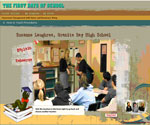

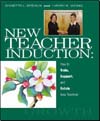

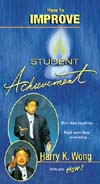
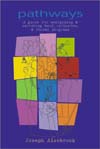


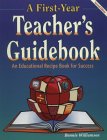
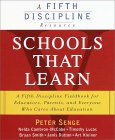

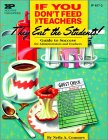
 Effective
Teaching...
Effective
Teaching...